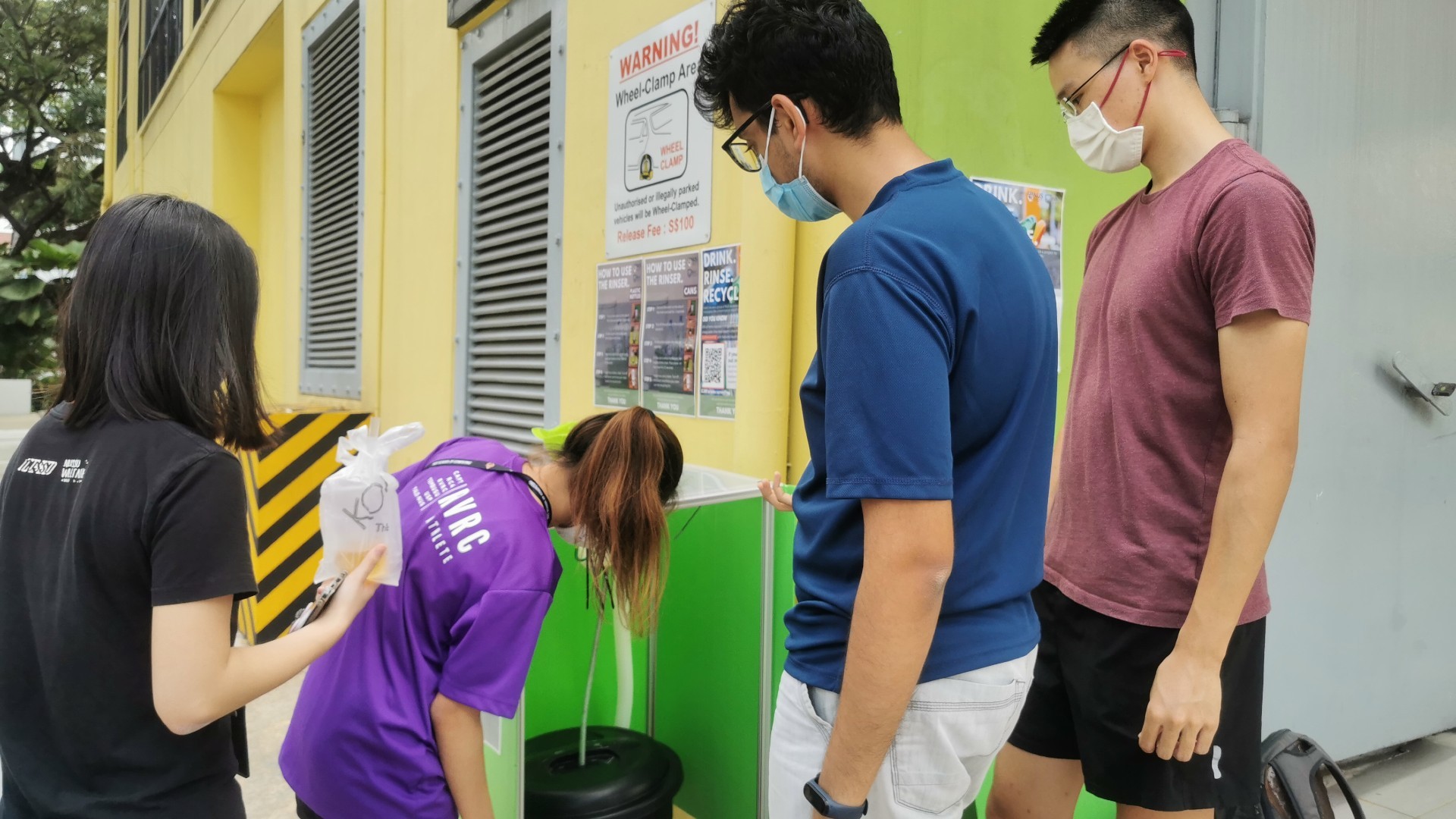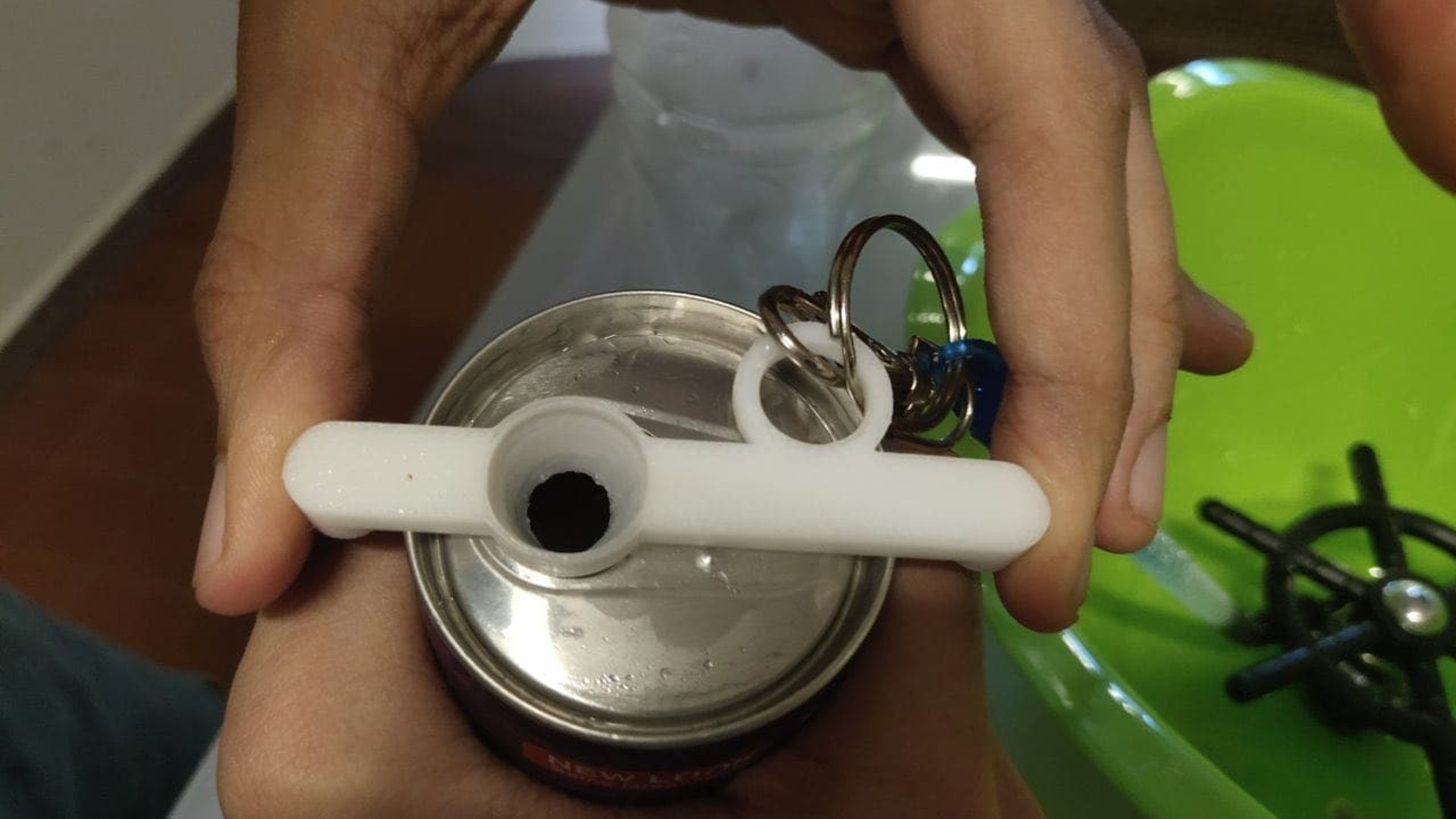A can-do spirit: Making a difference, one can at a time
A few semesters after its inception, the NUS Design-Your-Own-Module (DYOM) programme, an academic option which promotes self-directed education, is gaining traction. With the programme, students have the option of pursuing holistic interests outside of their disciplines, as well as the opportunity for multidisciplinary work and independent experiential learning.
This is precisely what a team of ten students from the Ridge View Residential College (RVRC) capitalised on in their DYOM. Led by Year 2 NUS Engineering student Koh Tze Yee and Year 2 NUS Science student Ong Sze Yi, the multidisciplinary team hailing from a range of faculties as diverse as engineering, arts and social sciences, computing, and science, invented a bottle- and can-rinser that allows users to efficiently clean their recyclables before recycling them. Contamination is a major reason preventing materials from being recycled.
The innovation was developed as part of the Project Code Red initiative by the Ministry of National Development (MND) and the National Development Agency (NEA).
Designed to be a user-friendly, hygienic, and weather-proof solution to reduce the rate of recyclable contamination, the prototype received a warm reception and positive public feedback when it was piloted at Jurong Green Community Club over a period of 10 days. It successfully cut the recyclable contamination rate from 86 to 44 per cent, with 96.5 per cent of survey respondents indicating that they were satisfied or very satisfied with the rinser, in particular its convenience and efficiency.
“We are also heartened to find out from the pilot test that the public—75.9 per cent of survey respondents—would use such a rinser if made available, and would recommend it to their friends,” Sze Yi said.
But getting their project from the conceptualisation to implementation phase was no mean feat. The team faced challenges such as zoning restrictions during the COVID-19 circuit breaker, which limited contact between group members of different zones, along with longer shipping times for essential electrical and structural components from overseas. To work around these issues, the team made arrangements for similarly zoned team members to work on the prototype at any one time, with contactless exchange of prototype parts between members from different zones.
The team also created their own component. “Whilst working on the rinser, we realised that the rinser nozzle of our prototype was not compatible with the popular aluminium soda cans. To work around this, I designed and 3D-printed an 'adaptor' that allowed the prototype to be used with aluminium cans as well,” said Year 2 NUS Engineering student Sarthak Bhatnagar, who was part of the team.
This spirit of adaptability and innovation in the learning process was what made the DYOM such a fulfilling experience for the team. It was not only an avenue to pursue a project they were passionate about, but offered a less structured, independent learning experience. “Overcoming the challenges forced us to combine what we learnt in our modules, and translate that knowledge into actionable items,” Tze Yee reflected. “Many challenges that we faced did not have clear-cut answers and we had to brainstorm ideas and compromises along the way as a team.”
The project demonstrated the multidisciplinary nature of the DYOM, requiring different disciplines and areas of expertise to complement each other from the development to implementation phase. “It was evident that there were two distinct parts to the project: the technical aspect of designing and building of the actual rinser, and the survey aspect which was essential in identifying the needs of the community,” said Year 2 NUS Science student Ching Ting, who is a member of the team. The engineering students in the team used their technical expertise to lead the prototype team in creating a user-friendly design, while the science students, equipped with their problem-solving and statistical skills, designed surveys and analysed the results to identify the needs of the community and the effectiveness of the rinser.
Now, even as the DYOM has formally ended, the team is still considering improvements to their prototype, to render it more compact and efficient, and cheaper to produce en masse. They are open to any opportunities that might present themselves in future, and doing their part for the environment, one can at a time.
Read more about other modules that have been conducted under the DYOM programme.





